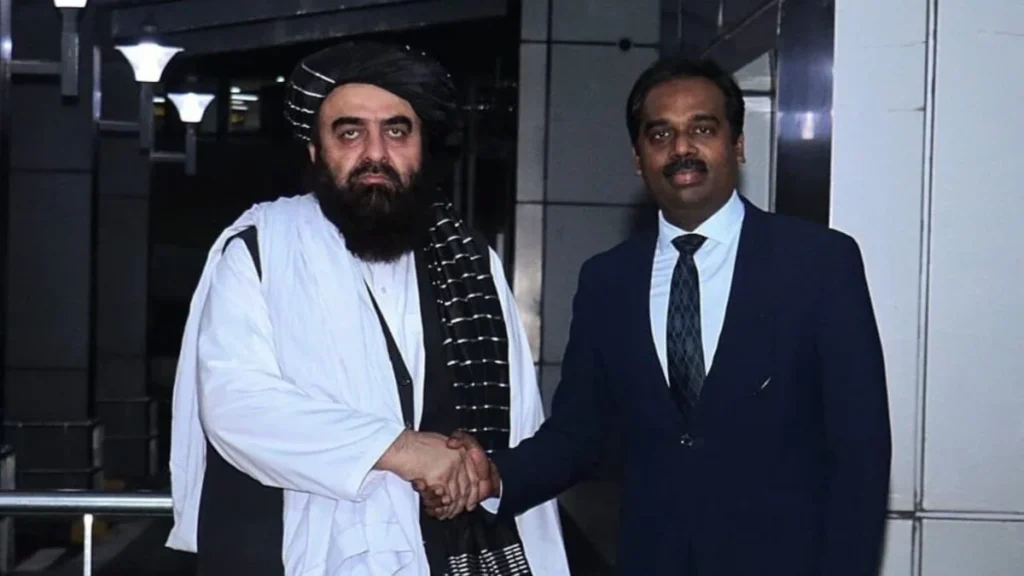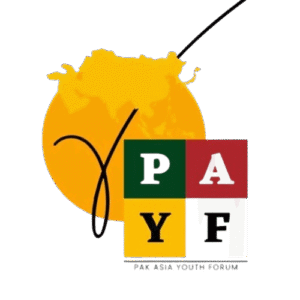The six-day visit of Afghan Foreign Minister Amir Khan Muttaqi to New Delhi, commencing on October 9, 2025, represents far more than routine diplomacy. Featuring high-level meetings with External Affairs Minister S. Jaishankar and National Security Advisor Ajit Doval, the trip marks the first ministerial-level interaction between the Taliban government and India since Kabul’s fall in August 2021.
Secured through a special UN Security Council’s 1988 sanctions committee travel waiver, the visit included discussions on trade, healthcare collaboration, consular services, and access to ports. Muttaqi also visited cultural and religious sites, including the Taj Mahal and Darul Uloom Deoband madrasa, alongside engagements with the Afghan diaspora. The unprecedented length and protocol of this trip signal a significant recalibration of Afghanistan’s foreign policy and a strategic shift away from Pakistan.
A Diplomatic Contrast: From Islamabad’s Postponement to Delhi’s Red Carpet
The contrast with Pakistan is particularly stark. Earlier in 2025, Muttaqi’s planned visit to Islamabad was postponed due to procedural issues and the absence of a UN waiver. The delay occurred amid growing tensions over cross-border militancy, particularly the resurgent Tehrik-i-Taliban Pakistan (TTP). By contrast, the Delhi visit, fully sanctioned and publicized, demonstrates Kabul’s intent to use India as a strategic counterbalance, signaling to Islamabad that Afghanistan can pursue independent, multipolar diplomacy.
Framing the Propaganda: Pakistan as the “Regional Spoiler”
Since the Taliban takeover of Kabul in August 2021, Indian think tanks and media outlets have consistently framed Pakistan as the primary destabilizing factor in the Afghan conflict. Muttaqi’s visit gave India a fresh opportunity to reinforce that narrative. Through coverage by The Hindu, Times of India, and NDTV, Indian media highlighted India’s “constructive” role in Afghanistan’s humanitarian aid while juxtaposing it with accusations that Pakistan “harbors” or “tolerates” militant networks, an attempt to depict India as the responsible regional actor and Pakistan as the spoiler. Delhi’s strategic messaging thus extended beyond diplomacy, entering the realm of narrative warfare designed to reshape perceptions of Pakistan’s role in Afghan affairs.
India’s Claims and Security Alignment
Delhi claims that the visit is aimed at safeguarding strategic investments, maintaining humanitarian aid channels, including nearly 50,000 tonnes of wheat delivered since 2022, and securing assurances against terrorist activities, particularly from Islamic State–Khorasan Province (ISKP). Muttaqi has publicly condemned ISKP attacks and rejected “false and baseless” reports, suggesting alignment with India on regional security concerns. Yet, the timing of emerging propaganda narratives is notable.
Around the same period, social media accounts linked to Afghan and Indian information networks began circulating claims that ISKP operates from Pakistani territory, allegedly in Balochistan under Shafiq Mengal’s network. This narrative, echoed by discredited figures like Ehsanullah Ehsan and amplified by Indian analysts, aims to divert international attention from India’s own security issues in Kashmir and Manipur, while delegitimizing Pakistan’s counterterrorism record despite recognition by the Financial Action Task Force (FATF).
Information Warfare and Media Synchronization
The diplomatic optics of Muttaqi’s Delhi visit also serve a broader purpose. By hosting Afghanistan’s foreign minister after his Pakistan visit was postponed, India seeks to symbolically position itself as the new regional bridge to Kabul, an implicit message that Pakistan’s traditional influence in Afghan affairs is diminishing. Through official receptions, high-profile meetings, and visits to religious institutions, Indian strategists are engineering an image of Afghanistan “trusting” India more than Pakistan.
This is coupled with online campaigns that magnify hashtags and opinion pieces portraying Pakistan as “isolated,” aligning with India’s long-standing strategy of diminishing Islamabad’s regional standing. The visit also coincides with a coordinated propaganda campaign on social media targeting Pakistan. Accounts linked to Afghanistan’s General Directorate of Intelligence (GDI), alongside self-proclaimed analysts, have been amplifying narratives designed to discredit Pakistan internationally.
The synchronization between Afghan-linked social media campaigns and Indian media coverage underscores the depth of this information operation, a modern extension of the tactics exposed in EU DisinfoLab’s 2020 report documenting a 15-year anti-Pakistan propaganda network.
Implications for Pakistan: Countering Isolation and Narrative Pressure
For Pakistan, the impact of this dual-pronged strategy, diplomatic isolation and information warfare, could be profound. It risks influencing Western policymakers, aid institutions, and regional perceptions, shaping a narrative that India is the stabilizing force in Afghanistan while Pakistan remains the problem. If unchecked, this could affect Pakistan’s diplomatic leverage, economic routes, and psychological standing as a reliable partner in counterterrorism.
Islamabad’s response, however, has remained measured. The Foreign Office reaffirmed that Pakistan supports all constructive engagement contributing to Afghan peace and stability while emphasizing its commitment to combating terrorism. Security officials have clarified that no credible evidence supports claims about ISKP’s presence in Pakistan and reiterated that counterterrorism operations such as Radd-ul-Fasaad and Zarb-e-Azb have dismantled terrorist infrastructure nationwide.
Experts like Dr. Rifaat Hussain and Lt Gen (R) Talat Masood caution that India’s narrative-building seeks to isolate Pakistan, but stress that Islamabad’s counterterrorism record, UN engagement, and FATF recognition remain its strongest defense.
Conclusion: A Diplomatic Milestone with Strategic Ripples
In conclusion, Amir Khan Muttaqi’s six-day visit to India is both a diplomatic milestone for Afghanistan and a warning for Pakistan. It demonstrates Kabul’s intent to pursue a non-aligned, multipolar foreign policy while simultaneously enabling anti-Pakistan narratives to proliferate across traditional and digital media. For Islamabad, this visit underscores the urgent need to recalibrate its foreign policy, strengthen border security, and engage proactively to counter both the geopolitical and propaganda challenges emerging from Afghanistan’s strategic realignment. The Delhi detour is therefore not just a diplomatic engagement; it is a calculated signal of Afghanistan’s independence and a strategic challenge to Pakistan’s regional influence.


